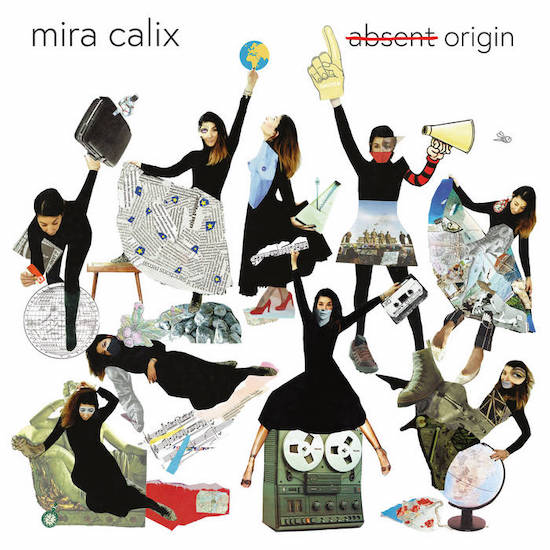Mira Calix has never been one to shy away from experimentation, but her latest album, absent origin, is a bold change of pace. Adopting an approach of collage as music, absent origin is loaded with samples from sessions Calix recorded with other artists, found sounds, and other recordings.
This is the culmination of all of her different approaches to her music over the years — ranging from string arrangements to experimental collaborations to more straightforward electronica — as well as her skills as a musician, composer, producer and DJ. It is a wildly ambitious work, which also translates to her working to fit a lot of ideas in one place, whereas previous work was allowed a languidness that there simply isn’t time for here.
Opening track ‘A Mark of Resistance’ exemplifies this approach, slowly rolling in with wordless vocals and a clacking percussion that speeds up and competes for space with samples of women chanting at a protest, a recitation of Adrienne Rich’s poem about Marie Curie, and an isolated vocal track from Cryogenic’s ‘The Unpredictable’ (which, when the line “Cross my path / and your ass’ll get whipped” is pared down against only that clicking beat, sounds genuinely intimidating).
While much of absent origin has less urgency than the opener, the album plays out like a constant test of boundaries: What can you build a rhythm on? What can still be catchy even as it elbows up against other intruding sounds? How many layers of samples can Calix include while still remaining present as the artist?
‘GARGLE (command V)’ is an interesting example of how she subsumes herself into a song. A vibrating vocal, barely more than a note, forms a pulsating texture that serves as a background for operatic singing and one of the album’s anti-Brexit statements. Calix is there, but she has woven herself into the background, more a mastermind orchestrating this different components than the musician at the centre of them.
What is impressive about absent origin is that the sprawling album does have a focus. There are repeated themes — feminist and internationalist snippets as well as musical motifs. And the albums winds down in a logical way as the soothing string arrangements and bird song of ‘an infinite thrum (archipelago)’ give way to the piano and more operatic singing of album closer ‘the abandoned colony collapsed my world.’
And lest her intention be lost, the final song is punctuated with a sample declaring: “I am a nasty woman” — though searching the phrase won’t turn up the sample’s speaker. Hopefully the liner notes will give a full account of all of the samples; some are otherwise bound to escape even the most attentive ears.


